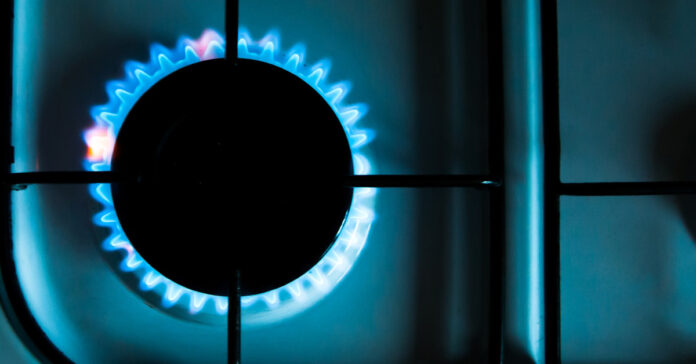
Over the past few years, production of more and more natural gas allowed prices to fall, saving consumers money on their heat and light bills and allowing multiple electric facilities to convert from coal to cleaner-burning gas. That era of inexpensive natural gas has come to an end.
Thanks in a large part to the Biden administration’s policies that promote green energy at the expense of oil and gas production, natural gas prices are up 96 percent from a year ago, and further increases are expected. Just another example of how the Democrats are hitting middle class and lower income Americans in their pocketbooks.
Because of rising gas prices, coal is gaining market share on the international market, which will cause even more greenhouse gas production. It just goes to show you that green policies often have unintended side effects.
Green Gone Bad
I’m not here to debate whether green energy production is good or bad, but I do believe policies that have caused coal production plants to shut down damage our economy, drive prices up for consumers, cause electrical shortages, and hurt the people of Appalachia and other coal mining communities. When politicians let a single issue drive them, the result is often shortsighted policies that often do more harm than good. In this case, the regulation and financial penalties on coal-fired electrical pants and the emphasis on so-called green technology of solar and wind power resulted in this winter’s black outs in Texas as windmills and gas lines froze.
Windmills are another example of what seems like a good idea but doesn’t live up to its advance billing. The giant fixtures are not only an eyesore and a killer of birds, but for the first five or ten years of their working lives, windmills have more environmental impact than coal or gas. That’s not a win-win; it’s a lose-lose. Unfortunately, it’s not the only example of green technology that makes people feel good while doing nothing to benefit the environment.
Electric cars are another example of a well-meaning technology that has nowhere near the positive environmental impact that environmentally conscious Americans expect. Mining lithium and other rare earth elements for rechargeable batteries can consumer huge quantities of energy and may cause significant environmental harm, and very few EV batteries are recycled when their useful life ends. I expect Americans will protest when recharging all those subsidized electric cars puts an even greater strain on the electric grid and results in more blackouts, especially in places like California.
Shooting Ourselves in the Foot
In a truly free market, we would see various power production methods succeed or fail based on their cost efficiency and appeal to the market, not due to government incentives and penalties. Private industry is always trying to develop the next big idea, but propping up technologies that are not yet ready to survive on their own is corrupting a system that worked well for centuries and helped the United States be one of the most advanced civilizations in history. If we are going to keep the lights on, keep the elevators running, and the trains on time, we need to emphasize reliability over emissions.
By flipping that equation, we may (or may not) end up with global temperatures that are a fraction of a degree cooler than they would otherwise be, but not enough to make a difference when your air conditioner runs out of power or your refrigerator quits and all your food spoils because of a blackout. Solar power won’t keep you warm in a blizzard.
The Green New Deal is just the latest club the socialists have chosen to beat us over the head. By implementing these policies to “save the world,” they enlist the support of those who have grown up in sheltered environments and have no idea what the free market and the real world is like. Competition drives the world, and shooting ourselves in the foot in the middle of the race is a losing strategy. By restricting U.S. companies from utilizing the most efficient sources of energy, the government is allowing companies in China, India and other off-shore producers a leg up because they can produce goods without the same restrictions.
That sound you hear? More money being sucked out of your pocket by government policies.
Prepper News Update
A follow up to yesterday’s post on how we would manage without microchips. The recent shortage is already driving up prices and affecting consumers, according to the Wall Street Journal article “Chip Shortages Are Starting to Hit Consumers. Higher Prices Are Likely.” Interestingly, the article says an increase in video game and laptop sales as more people stayed home during the pandemic is partly to blame for supply issues.






